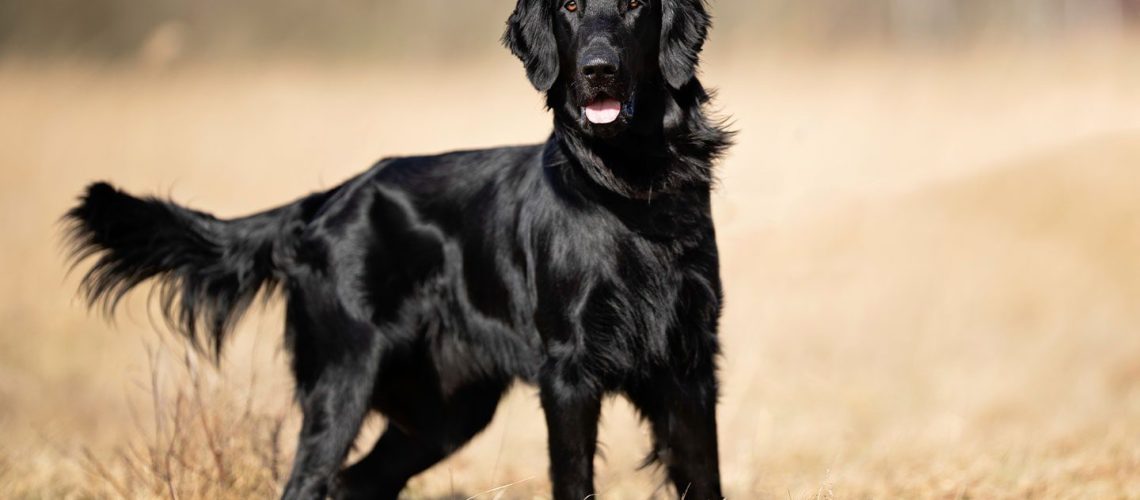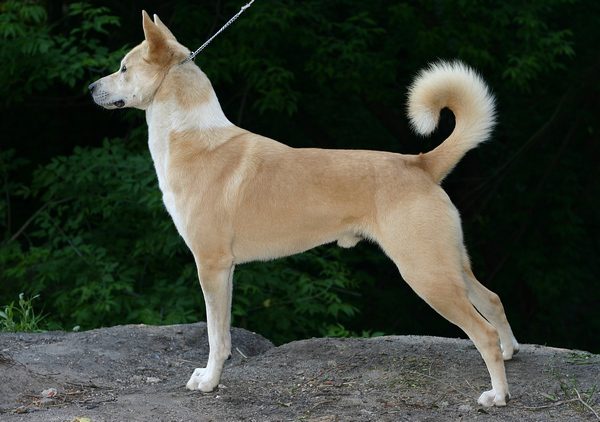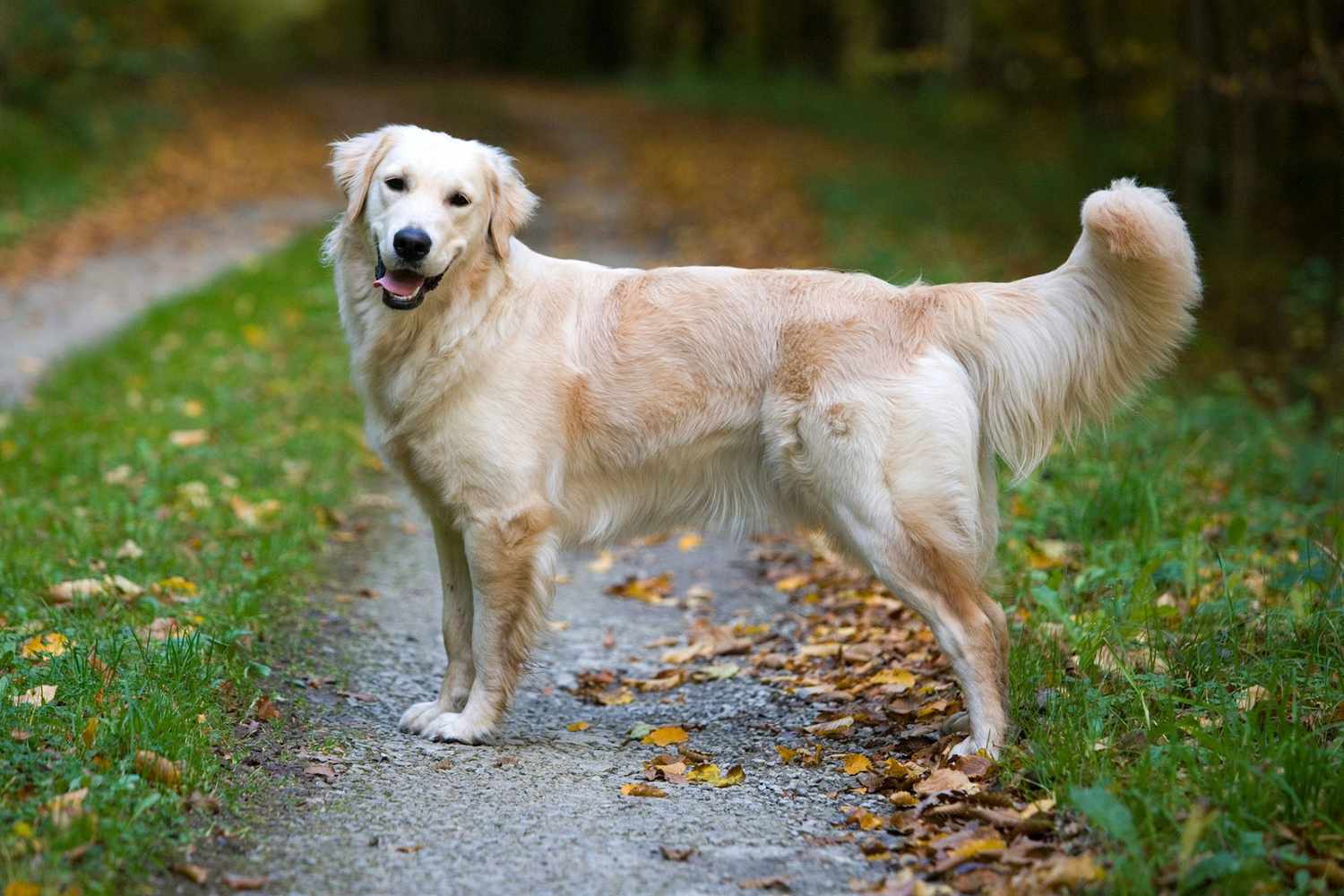Key Takeaways:
- Flat-Coated Retrievers are known for their friendly and outgoing personalities.
- They require regular exercise to maintain their physical and mental health.
- These dogs have a dense, water-resistant coat that needs regular grooming to prevent matting.
- Flat-Coated Retrievers are intelligent and eager to please, making them relatively easy to train.
- Socialization from an early age is crucial to ensure they get along well with other animals and people.
Are you ready to embark on a journey into the world of Flat-Coated Retrievers? These remarkable dogs have so much to offer, and by delving into this subject, you'll uncover a treasure trove of knowledge that will not only enrich your understanding but also enhance your bond with these lovable companions. Whether you're a current owner looking to deepen your connection or someone considering adding a Flat-Coated Retriever to your family, understanding their characteristics and care is essential. So let's dive in and explore the fascinating world of Flat-Coated Retrievers together! Get ready to discover why these dogs are truly one-of-a-kind.
What is a Flat-Coated Retriever and what are its key characteristics?
Introduction to the Flat-Coated Retriever
The Flat-Coated Retriever is a medium to large-sized dog breed known for its friendly and outgoing nature. They were originally bred in England as gundogs, specifically for retrieving game from both land and water. These dogs have a strong desire to please their owners and are often described as happy-go-lucky companions.
Physical Characteristics
Flat-Coated Retrievers have a distinct appearance with a long, shiny coat that comes in solid black or liver color. They have a sleek body structure with well-developed muscles, allowing them to be agile and swift. Their heads are broad with expressive dark eyes and pendant-shaped ears that hang close to their cheeks. The breed's most prominent feature is their long tail, which is usually carried straight or slightly curved.
Temperament
One of the key characteristics of Flat-Coated Retrievers is their friendly and outgoing nature. They are known for being great family pets due to their love for children and other animals. These dogs are highly sociable and enjoy being part of all family activities. They have an enthusiastic approach towards life, always ready for playtime or an adventure outdoors. However, they can also be sensitive dogs that thrive on positive reinforcement training methods.
Overall, the Flat-Coated Retriever is an intelligent, affectionate, and energetic breed that makes an excellent companion for active families who can provide them with plenty of exercise and mental stimulation.
The friendly and outgoing nature of the Flat-Coated Retriever as a family pet
A Loving Family Companion
The Flat-Coated Retriever's friendly nature makes them an ideal choice as a family pet. These dogs are known for their love and loyalty towards their human family members. They form strong bonds and enjoy being part of all family activities.
Playful and Energetic
Flat-Coated Retrievers have a playful and energetic personality that brings joy to any household. They love to engage in games, whether it's playing fetch in the backyard or participating in agility training. Their enthusiasm is contagious, making them great playmates for children.
Good with Children and Other Pets
One of the remarkable traits of Flat-Coated Retrievers is their gentle nature with children. They are patient and tolerant, making them excellent companions for kids of all ages. Additionally, these dogs usually get along well with other pets in the household if properly introduced and socialized from an early age.
With their friendly and outgoing nature, Flat-Coated Retrievers can bring happiness and warmth to any family setting. Their love for playtime and ability to get along with everyone make them an ideal choice for those seeking a loyal and sociable companion.
Grooming needs for a Flat-Coated Retriever's long, shiny coat
Maintaining the Beautiful Coat of a Flat-Coated Retriever
The Flat-Coated Retriever has a stunning long coat that requires regular grooming to keep it healthy and looking its best. Here are some essential grooming needs for this breed:
Regular Brushing
To prevent matting and tangles, it is important to brush your Flat-Coated Retriever's coat at least two to three times a week. Use a slicker brush or comb designed for medium to long-haired breeds to remove loose hair and keep the coat shiny.
Bathing as Needed
While Flat-Coated Retrievers don't require frequent baths, they should be bathed when they are dirty or have a strong odor. Use a dog-specific shampoo and conditioner to keep their coat clean and healthy. Be sure to rinse thoroughly to remove all product residue.
Nail Trimming and Ear Cleaning
Regular nail trimming is essential for Flat-Coated Retrievers to prevent overgrowth, discomfort, and potential injury. Additionally, check their ears regularly for dirt, wax buildup, or signs of infection. Clean the ears with a veterinarian-recommended ear cleaner using a cotton ball or pad.
By following these grooming practices, you can ensure that your Flat-Coated Retriever's coat remains beautiful and free from any discomfort or health issues. Regular grooming sessions also provide an opportunity for bonding and strengthening the bond between you and your furry friend.
The importance of regular exercise for a Flat-Coated Retriever and fun activities to keep them happy
Keeping Your Flat-Coated Retriever Active and Happy
Flat-Coated Retrievers are energetic dogs that require regular exercise to maintain their physical and mental well-being. Engaging them in fun activities will not only keep them happy but also help prevent behavioral problems that may arise due to pent-up energy.
Daily Exercise Routine
To meet the exercise needs of a Flat-Coated Retriever, plan for at least 60 minutes of physical activity each day. This can include brisk walks, jogging, swimming, or playing fetch in a securely fenced area. These dogs thrive on active lifestyles and enjoy being involved in various outdoor adventures.
Agility Training
Flat-Coated Retrievers excel in agility training due to their intelligence and athleticism. Set up an agility course in your backyard or enroll them in organized agility classes where they can jump over hurdles, weave through poles, and navigate tunnels. This type of training provides both mental stimulation and physical exercise.
Interactive Toys and Puzzle Games
In addition to physical exercise, mental stimulation is crucial for a Flat-Coated Retriever's well-being. Provide them with interactive toys that challenge their problem-solving abilities or engage them in puzzle games where they have to figure out how to access treats hidden inside. These activities keep their minds sharp and prevent boredom.
By incorporating regular exercise and engaging activities into your Flat-Coated Retriever's routine, you can ensure they lead a happy and fulfilling life. Remember, a tired dog is a happy dog, so make sure to provide them with plenty of opportunities to burn off their energy in a positive and enjoyable way.
Why early socialization and training are crucial for well-behaved Flat-Coated Retrievers
The Importance of Socialization and Training
Early socialization and training play a vital role in shaping the behavior of Flat-Coated Retrievers. Properly introducing them to various people, animals, environments, and experiences during their formative months sets the foundation for a well-behaved and confident dog.
Socialization Benefits
Socializing your Flat-Coated Retriever from an early age helps them develop good manners, adaptability, and confidence. It teaches them how to interact appropriately with other dogs, humans of all ages, and different situations they may encounter throughout their lives.
Obedience Training
Obedience training is essential for ensuring that your Flat-Coated Retriever becomes a well-behaved member of society. Basic commands like sit, stay, come, and heel should be taught using positive reinforcement techniques such as treats or praise. Consistency is key when training these intelligent dogs.
Continued Training Throughout Their Lives
Training should not stop after basic obedience commands are learned. Flat-Coated Retrievers thrive on mental stimulation and enjoy learning new things. Engage them in advanced obedience training, fun tricks, or even consider participating in dog sports like agility or rally obedience. This ongoing training strengthens the bond between you and your dog while keeping their minds sharp.
Early socialization and consistent training will help your Flat-Coated Retriever grow into a well-mannered and obedient companion. Invest time and effort into these areas to ensure a happy, confident, and well-adjusted dog who can comfortably navigate various social situations.
Potential health concerns when caring for a Flat-Coated Retriever
Health Considerations for Flat-Coated Retrievers
While Flat-Coated Retrievers are generally healthy dogs, like any breed, they may be prone to certain health conditions. Being aware of these potential concerns allows you to take proactive measures to keep your furry friend healthy.
Cancer
Unfortunately, cancer is one of the major health concerns in Flat-Coated Retrievers. The most common types seen in this breed include hemangiosarcoma (a cancer of blood vessels), osteosarcoma (bone cancer), and mast cell tumors. Regular veterinary check-ups, early detection, and prompt treatment are crucial for managing these conditions.
Hip Dysplasia
Hip dysplasia is a hereditary condition that affects the hip joints of dogs. It occurs when the ball and socket joint do not develop properly, leading to pain and mobility issues. Regular exercise, maintaining a healthy weight, and providing joint supplements recommended by your veterinarian can help manage this condition.
Progressive Retinal Atrophy (PRA)
Progressive retinal atrophy is an inherited eye disease that causes gradual vision loss leading to blindness. Regular eye examinations by a veterinary ophthalmologist can aid in early detection of PRA. While there is no cure, supportive care and making necessary adaptations at home can help your dog live a fulfilling life.
Regular veterinary care, a balanced diet, exercise, and maintaining a healthy weight are essential for the overall well-being of Flat-Coated Retrievers. By being aware of potential health concerns and taking appropriate preventive measures, you can ensure your furry companion enjoys a long and happy life.
Tips for providing proper nutrition to ensure the well-being of a Flat-Coated Retriever
Nutrition Tips for a Healthy Flat-Coated Retriever
Providing proper nutrition is vital for keeping your Flat-Coated Retriever healthy and thriving. Here are some tips to ensure they receive the right balance of nutrients:
High-Quality Dog Food
Choose a high-quality dog food that is specifically formulated for medium to large-sized breeds. Look for options that contain real meat as the main ingredient, with no artificial additives or fillers. Consult with your veterinarian to determine the appropriate portion size based on your dog's age, weight, and activity level.
Protein and Fat Content
Flat-Coated Retrievers require a diet rich in protein and moderate in fat to support their active lifestyle. Protein helps build strong muscles, while fat provides energy. Aim for a dog food that contains around 20-25% protein and 10-15% fat.
Avoid Overfeeding
Flat-Coated Retrievers have a tendency to overeat if given the chance. Obesity can lead to various health issues such as joint problems and reduced lifespan. Follow feeding guidelines provided by the dog food manufacturer or consult with your veterinarian to determine the appropriate amount of food for your dog's needs.
Monitor Weight Regularly
Keep an eye on your Flat-Coated Retriever's weight and body condition. Ideally, you should be able to feel their ribs with a slight layer of fat covering them. If you notice weight gain or loss, adjust their food intake accordingly and consult with your veterinarian if necessary.
By providing a balanced and nutritious diet, monitoring portion sizes, and ensuring your Flat-Coated Retriever maintains a healthy weight, you can contribute to their overall well-being and longevity. Regularly evaluate their dietary needs as they age or if any health concerns arise.
In conclusion, the Flat-Coated Retriever is a friendly and energetic dog breed that requires regular exercise and mental stimulation. With proper care and training, they can make great family pets for those willing to invest time and effort into their needs.
Are flat coated retrievers high-maintenance?
Although Flat-Coated Retrievers may appear rugged, they actually require a lot of care and attention. While their coats are fairly easy to maintain, they do shed frequently. Additionally, due to their high activity levels and slower maturity compared to other breeds, you will need to spend a significant amount of time playing with and training your dog.
What are the characteristics of a Flat-Coated Retriever?
Flat-Coats are known for being highly intelligent, responsive, and eager to please, which makes them generally easy to train. However, they have a sensitive temperament and do not react well to harsh corrections or training techniques.
Is a Flat-Coated Retriever a good family dog?
Flat-Coated Retrievers make great pets, especially for families with young children. The PDSA states that they are generally well behaved when left alone, as long as their exercise and training requirements are fulfilled.
What are the cons of flat coated retrievers?
The flat-coated retriever has a tendency to experience health issues such as canine hip dysplasia, bloat, lymphosarcoma, and cataracts. It is important to regularly take your dog to the vet for vaccinations and to check for any other potential problems.
Do flat coated retrievers smell bad?
Regular brushing is essential for maintaining the shiny appearance of a Flat-Coated Retriever's coat and preventing any unpleasant odors. This breed, and retrievers in general, have a tendency to develop a strong dog smell, particularly when wet, as the Flat-Coat is known to enjoy water activities.
Do Flat-Coated Retrievers bark a lot?
When Flat-Coated Retrievers feel anxious, they may bark more than usual, but their barking is typically not excessive.

















